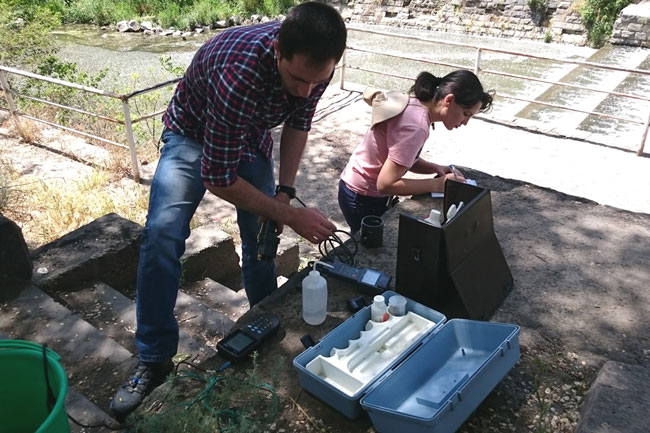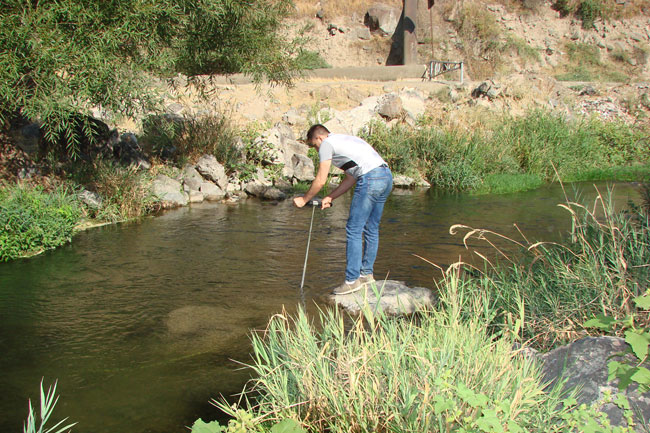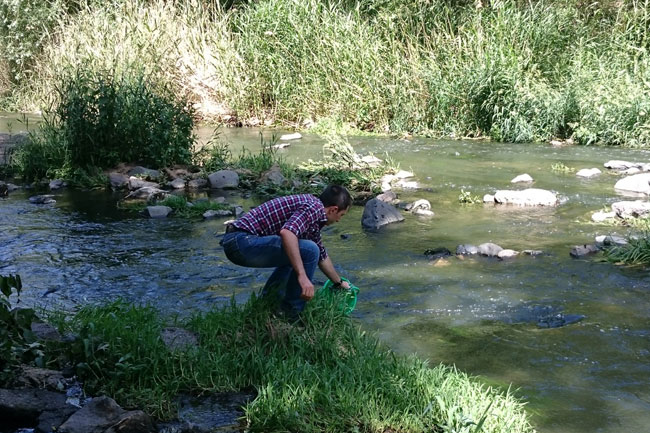| ||||||||
A study and multivariate statistical analysis of Fe, Co, Ti, V, Mn, Ba, Cu, Pb, Zn, Mo, Cr, Sr, Rb and Zr contents in the bottom sediments of the Hrazdan River section passing through Yerevan have been carried out at the Center for Ecological-Nooosphere Studies of NAS RA (CENS). According to the results, the studied elements appear in three separate geochemical associations: Fe-Co-Ti-V-Mn-Zr (I), Cu-Pb-Mo-Zn-Cr (II) and Sr-Ba-Rb (III).
"Any environmental compartment has a specific chemical composition. The elements included in that chemical composition are presented in interrelated or independent way. The interrelated elements represent geochemical associations. These associations may change in line with the changes of the chemical composition of the environment. The geochemical associations of the chemical composition of the unaltered natural environment are
background. In the urban environment, due to the presence of anthropogenic sources, the background geochemical associations are being transformed, the composition of chemical elements is changing. As a result of this research, it has been found that the geochemical associations of Fe-Co-Ti-V-Mn-Zr and Sr-Ba-Rb elements in the bottom sediments of the Hrazdan River section passing through the Yerevan territory have remained close to natural one, whereas the Pb-Mo-Zn-Cr group is an association formed as a result of the anthropogenic impact," said Gevorg Tepanosyan, the head of the Department of Environmental Geochemistry of the Center. According to him, the study is of applied significance since it reveals the features of the process of changing of the chemical composition of river sediments in the urban environment under the conditions of anthropogenesis. The research has been carried out with participation of young scientists.
The research was carried out within the framework of the State Budget of the Center. A scientific article was published on certain results of the research: Tepanosyan G., Harutyunyan N., Maghakyan N., Sahakyan L. Potentially toxic elements contents and the associated potential ecological risk in the bottom sediments of Hrazdan river under the impact of Yerevan city (Armenia ), Environmental Science and Pollution Research, 2022, p. 36985–37003, https://doi.org/10.1007/s11356-022-18526-2, IF=5.19. |
General Page - About Academy - Divisions - Organizations - Members - Contact us - Structure - Presidium Members
Documents - Innovation Proposals - Publications - Funds - Conferences - Competitions - International cooperation
Youth programs - Photogallery - Videogallery - Web Resources Other Academies - "Gitutyun" newspaper - "In the World of Science" Journal
Publications in Press - Notices - Anniversaries - Universities - News - Scientific Results - Diaspora Department presents
Young Scientist Tribune - Our Honored Figures - Announcements - Sitemap - COVID-19 - Search



